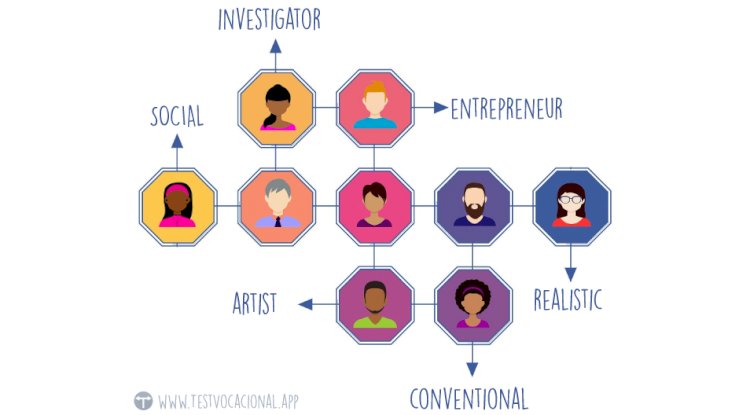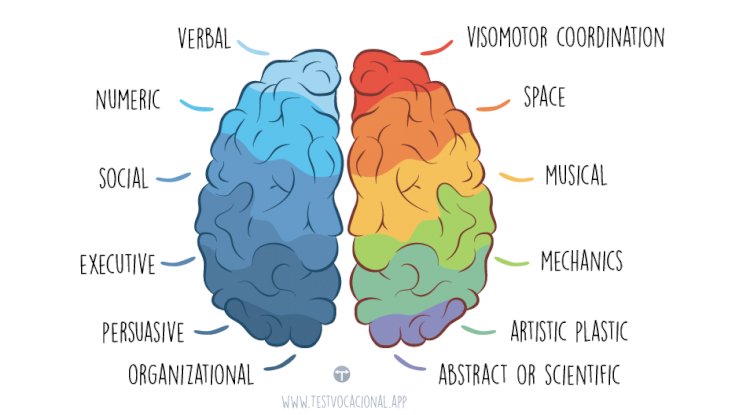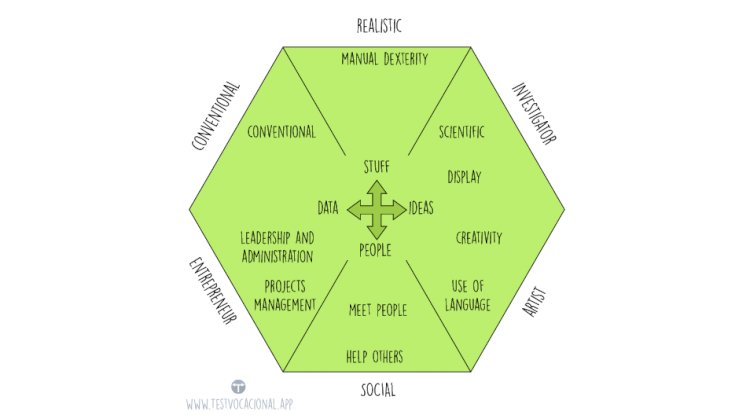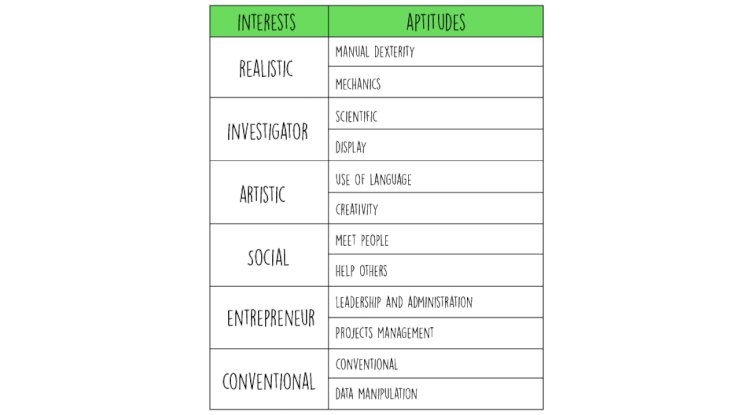Career & Aptitude Tests
As you already know, there are many career guidance tests to help you decide which college career to study. Today we are going to tell you more about the Chaside Test, how to do it and what results you will get. When you're done, we'll provide you recommendations for great new careers that best match your answers. Have fun!

What is the Chaside Career Counseling Test?
The Chaside Test is a career counseling test developed by Dr. Holland. It is a tool intended to help you differentiate what would be the best decision based on your interests and / or preferences. It will also let you know what the best decision would be based on your aptitudes and abilities (Lázara, 2007).
What are interests and abilities?
The Chaside Test is a questionnaire with 98 questions focused on identifying your interests and aptitude for selecting a vocation.
Interests are natural inclinations or dispositions that people have towards one or more activities, objects or individuals. You may have many or multiple interests, and thanks to them, your work or activities are enjoyable for you. Interests compel the person to actively seek ways and means to satisfy her "craving for knowledge and knowledge."
There are various occupations and our preferences may be directed towards one or more of them. Usually we all have a vocational profile or a combination of interests, so Dr. John Holland proposed 6 types of interests based on personality.

There are 6 personalities according to your interests:
-Realistic personality: they prefer to work with objects or machines. In general, they are practical and persistent people, with mechanical skills and who prefer to work abroad.
-Research personality: these people prefer to work with ideas. They are generally analytical and reserved, with scientific and mathematical capabilities. For example, they conduct research or may work in laboratories.
-Artistic personality: they prefer to work with creative ideas, as well as with the different ways of expressing them and making them known to others. In general, they are emotional and open people, with capacities for musical composition, acting, writing or visual art.
-Social personality: they prefer to work and interact with people, in general. They are helpful and friendly people, who prefer to work in areas that allow them to advise, guide and teach.
-Entrepreneurial personality: these people prefer to lead or direct people. They are generally sociable and bold. They show leadership and communication skills.
-Conventional personality: they prefer to organize and manage data, working in environments where the systematization of information is required. They are generally methodical and practical people.
On the other hand, aptitudes are capacities that people have to carry out certain activities. They are skills developed through practice and repetition, which are learned and trained. This means that skills are the result of the interaction between the characteristics that the person inherits and the environment that surrounds them. Certain characteristics, such as intelligence, personal traits, interests, and level of education, predispose to learning. If you know your skills, it will be easier to know in which profession you could perform better.

The Chaside test identifies 12 types of skills
The skills are:
- Visomotor coordination (ability for controlled movements that require great precision and hand-eye coordination).
-Social (ease of dealing with people, listening to them and helping them).
-Musicals (ease of perceiving tones and rhythms, composing music and memorizing notes).
-Numeric (ability to work with numbers, agility to perform operations with them).
-Extract or scientific (to understand principles and theories that are not inscribed in nature).
-Space (ability to organize, transform and orient objects in a given space).
-Verbal (understand words, sentences and texts, and make appropriate structures using logic).
-Mechanics (ability to handle objects and understand mechanisms).
-Artistic-plastic (ability to apply colors, appreciate aesthetic shapes and develop shapes).
-Executive (ability to master social situations, plan and lead work groups).
-Organization (ability to classify, order and systematize an information source).
-Persuasive (ability to argue, convince and counter-argue).
What is my vocational profile?
To develop the person's vocational profile, each interest is associated with two skills. This seems more complex than it is, in the table below you can find the interests and the 12 skills associated with them. After taking our Vocational Tests, you will be able to understand in depth the results of your vocational profile.

To develop the person's vocational profile, each interest of two associated skills.

There are 12 skills associated with interests.
Knowing your skills and interests, you can decide your career orientation or if you are thinking of a new job exit, this test can help you decide. You can take the Chaside Test in our CAREER TEST application and know your vocational profile.
What are occupational areas?
Occupational areas are sets of careers, which share the scope where the work is carried out or have the same scientific or technical principles. These occupational areas group different types of activities from the world of work. For example, occupations related to agricultural or natural sciences.
From the acronyms that make up the name Chaside Test derive the occupational areas in which you may be interested:
-C (Exact, Administrative and Accounting Sciences)
-H (Humanistic and Social Sciences)
-A (Artistic)
-S (Health Sciences and Medicine)
-I (Engineering and Computing)
-D (Defense and Security)
-E (Agrarian and Natural Sciences).
If you want to know more about the Occupational Areas, we invite you to read our article about the Test M.G M.M. Remember, the more vocational tests you do, the more results you can compare and make a better decision. If the results are different or you don't feel identified, don't worry, take it as an opportunity to learn more about yourself. If the results are similar and you feel comfortable, you have it clearer than you thought.
What's Your Reaction?



















